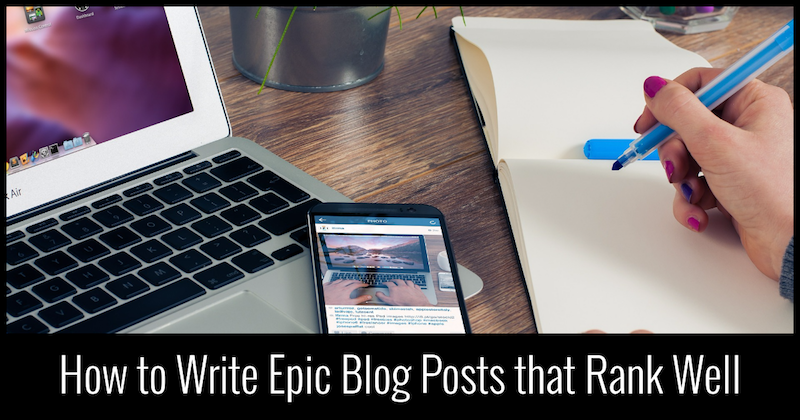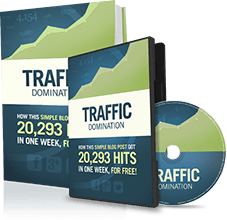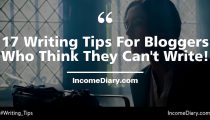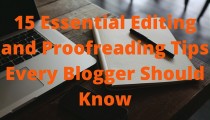How to Write Epic Blog Posts that Rank Well
You too can write blog posts that rank well…

Through 34 posts, I’ve learned a lot about writing great online content – particularly content that ranks well with search engines.
I’m proud to say that many of my articles show up on Google’s front page (for terms like “great thoughts” and “Steve Jobs life lessons”).
This type of content is the engine driving Income Diary’s success. I’m not privy to the exact statistics, but I know that Income Diary gets a huge monthly traffic stream from Google.
As more and more articles are published online every day, the competition to earn Google’s top spot gets ever-fiercer.
If you want to rank well in 2017 and beyond, you’ll have to write truly extraordinary content.
I’m here to share with you what I know about doing just that. You too can write epic blog posts that rank on Google’s front page for popular keywords.
What You’ll Learn:
- What a good post has in common with Walmart
- The three types of epic posts I write
- Why quotations are your best friend
- Why I use two separate Word documents to write epic posts
What Makes a Blog Post Epic?
A “One-Stop” Destination
The Super Walmart in my town is the ultimate one-stop-shopping locale. You can buy clothes, groceries, bicycles, electronics, get your hair cut, have your eyes inspected, and get your car’s oil changed – all in one place.
People love Walmart because they can get almost anything without having to go all over town.
Google loves web pages for the same reason. They want to deliver search results that provide their customers with everything they need, without having to follow a bunch of links. So be thorough. Before you click ‘Publish’, ask yourself if there’s anything else that you could provide the audience of post.
Now personally, I don’t love Walmart. I would rather shop at a smaller, local store with a bit of character. But I do love thorough web content that save me time by giving me all of the information I could possibly need in one place.
Length
All of my posts on Income Diary are at least 2,000 words long.
It’s not because I think longer is better. Sometimes less is more. Seth Godin is one of the world’s most successful bloggers and he rarely writes posts longer than 300 words. Short posts are easy to read – and therefore easy to comment on and share.
But don’t count on your short posts ranking well with search engines.
You’ll have a better chance of getting on the front page of Google if your post is at least 2,000 words. Longer posts have more keywords, more often, and in more combinations. Search engines also see them as being more likely to fulfill their users’ needs because they contain more information.
Types of Epic Posts
There’s no strict format that your post needs to adhere to in order to be epic and rank well, but it does help to have a loose template so that things stay organized.
Lists
Readers love top list posts because they’re easy to read and they rank the best of the best. Income Diary loves list posts because they’re its greatest source of traffic. I like writing list posts because the format is so simple.
Step-by-Step Guides
The remaining most successful Income Diary posts of 2011 were mostly step-by-step guides. Guides always make for great blog content because they provide enormous value to readers and they’re search-engine friendly.
You can format your guide by breaking the process down into its essential steps and then breaking those steps down further into sub-steps, if necessary.
The goal of a guide is to make the task easy to complete for your readers. So most good guides won’t be particularly lengthy. But when you need to guide your reader through an especially nuanced process, like making a successful Kickstarter campaign, a guide can become very epic indeed.
Category
Not every subject fits snuggly into a list or guide.
Take for example the “Blogger Profiles” I’ve been writing lately, like this one about Matthew Inman of The Oatmeal. The goal of these posts is to give an overview of what makes each top blogger successful – and that’s a pretty broad topic.
In order to make it digestible, I organize each post into four categories: content, driving traffic, design, and monetization. Then I break down each category into three lessons. It’s not just better organized; it also allows readers to self-select which areas they want to learn about.
What to Include in an Epic Blog Post
Eye Candy
The web is so full of flashy graphics, high-res photos, and animated videos… it’s asking a lot of your audience to get through 2,000 words without a little bit of eye candy.
A few images go a long way to break up the text and attract the attention of people who may just be skimming through. Images can also help to clarify the composition of longer articles. You’ve probably already noticed that there’s a new image for each new category in this post.
The same goes for video. It only takes a couple of minutes to search YouTube and embed a video into your post.
Bullet Points
I’ve recently started adding some “What You’ll Learn” bullet points near the beginning of all of my Income Diary articles. This is the last thing that I write and it only takes me a minute, but it serves a couple of really important purposes.
First of all, it gives the reader a bit of a roadmap for the post; he or she can take in a few bullet points and immediately know if the content below contains what they’re looking for. This is especially important on these longer posts.
The bullet points also give the reader some benefits for reading on. Usually, a benefit is apparent in my headline or introduction, but it doesn’t hurt to toss in a few more reasons why you’ll be better off after getting to the bottom of the page.
Finally, bullet points can create a curiosity gap. If you make your bullet points truly fascinating, they’ll function like cliffhangers at the end of a chapter in a novel: your readers will be compelled to read on just so they can satisfy their curiosity.
Quotations
As an online writer, quotations are your best friend. I’ve never written an article for Income Diary without at least one quotation and most of my posts have at least five.
So why am I so in love with using quotations? I’ll give you three good reasons.
#1 Block Quotes Create Space
A block quote is a quotation that’s set apart from the main text. Like this:
“I always have a quotation for everything – it saves original thinking.”
Dorothy L. Sayers
Since it’s indented, italicized, and on a gray background, the block quote really stands out visually. It’s a welcome break from paragraphs of text.
But block quotes create more than just visual space. Since they pull the reader away from the main text, they also create temporal space. A reader is more likely to take an extra moment to reflect after reading a block quote. In this way, they serve as powerful points of emphasis or transition within your writing.
Not all quotes have to be block quotes, however. Sometimes the best way to use a quotation is to incorporate it directly into your paragraph text.
#2 Quotations are Authoritative
“A quotation in a speech, article or book is like a rifle in the hands of an infantryman. It speaks with authority.”
Brendan Francis
Good writing establishes authority and quotations offer one way to make your writing more authoritative by “borrowing” the authority of the original speaker. If you implement a quote from a well-respected expert, your reader will trust that it’s true because they trust the source.
Some of this trust bleeds through to rest of your article. Your reader will recognize that you’ve done some research and that your views align with those of experts.
#3 Quotations are Powerful
“An apt quotation is like a lamp which flings its light over the whole sentence.”
Letitia Elizabeth Landon
Letitia Elizabeth Landon is an English writer who died in 1838. Why am I repeating her quote here over 170 years later?
It’s because she’s already said what I want to say better than I can. Her statement above “flings its light” on what makes quotations so powerful.
A good quote injects your writing with energy because it’s evocative, impactful, and gets right to the heart of its subject. If you’re thinking about using that doesn’t have these qualities, then you probably just shouldn’t use it.
How to Find Relevant Quotations
Google:
There’s a plethora of quote databases online that archive quotes based both on category and author. BrainyQuote (Alexa Rank: 1,486) is a good place to start.
To find the two quotes above, I literally just Googled “quotes about quotations” and ended up on BrainyQuote.
Books:
If you’re an avid reader of books in the same niche as your blog, then you should consider keeping a reader’s journal. Whenever you’re reading, have it with you so that if you stumble upon a winning sentence you can transcribe it, along with the author name and page number.
Consult your reader’s journal before writing a blog post and see if any of those powerful expressions are relevant to your article.
How to Format a Block Quote for your Blog
When you’re formatting your post in the visual editor, just highlight your quote and press “ALT + SHIFT + Q”. You can also just click the icon that looks like a quotation mark.
If you’re formatting in html, the tag is “<blockquote>”.
Putting it All Together
Drafting
When I start writing a long article like this one, I’ve got about a thousand different ideas running through my head… possible angles, sections, and sentences. I need a place to start hashing all these ideas out and refining them.
So I start a “draft” Word document where I can brainstorm, pre-write, and otherwise scrawl down every thought that comes into my head.
Eventually, these ideas start coming to form. When that happens, I start a new “final” document and begin copy-and-pasting the polished writing into it from the draft.
From then on, I keep both of these documents open. The “draft” document gives my scattered, creative mind a place to roam free. The “final” document gives me a structured place to reign in the chaos and set my writing in stone.
Formatting
The longer your post is the more important formatting becomes. Images and block quotes will go a long way towards making your content more digestible, but there’s no substitute for headings and sub-headings.
Writing
If you expect someone to sit down and read 2,000+ words, you owe it to them to write those 2,000 words very well. That means giving yourself plenty of time writing about something that you actually know a lot about.
If you want some writing advice, you can check out my article of tips on how to become a better online writer.
Ready to Get on Google’s Front Page?
Writing valuable, thorough, and otherwise epic content is the single most important thing you can do to rank well with search engines. But you won’t get to the top for competitive keywords unless you take additional optimization techniques into account.
To learn more about how to optimize for search, I recommend you check out these two Income Diary articles from Nicholas Tart:
9 Reasons Why You’re Not Getting Search Engine Traffic
10 SEO Blog Post Publishing Steps that Most Bloggers Forget
"Do Not Write Another Blog Post Until You Watch This Free Video..."

Watch this free video to learn...
- How I got over 10,000,000 people to visit my websites.
- The types of blog post that got me all that traffic.
- How to get someone else to do it for you!









![New WordPress Install – 20 Things You Must Do [Checklist] New WordPress Install – 20 Things You Must Do [Checklist]](wp-content/uploads/2016/09/new-wordpress-install-2016-210x120.jpg)






Some really great stuff here! I like the idea about keeping two different word docs open and using one to let ideas flow. I have learned a lot from this site and refer back to it often. Many of the things I implement on my own blog have come from this site. Thanks for the helpful information. Keep it up!
Thanks Joseph — so glad that the two Word document tip hit home for you. Good luck with your blog and I’ll see you around again soon.
Great post Nick!
I really got to get this point through to everyone: Top lists rock! 90% of my traffic from search engines and social media come from top lists.
If I had to focus all my time on creating great content or working at social media and on search engine optimization, I would choose the content, every time.
Content is king people!
That’s amazing that 90% comes from top lists. Maybe I’ll have to get on making another one of those…
Hello from Montana,
Wow, I would have thought 2,000 words would be a Kindle book (and it very well could be.)
I learned a lot reading this post, some I already knew and forgot, and some ideas to try.
Thanks for sharing.
Judy H. Wright aka “Auntie Artichoke”
author, speaker and thinker
2,000 words is a lot to read — and even more to write. Thanks for the comment.
This article came right in the nick of time. I am working on setting up my first site, so I am in the process of writing article. This article will certainly be of great benefit. Well done, and great read
A few epic “pillar” articles will go a long way towards your new site receiving traffic from search. Best of luck!
I liked the whole section on quotes. I always enjoy a good quote.
“A man should look for what is, and not for what he thinks should be. ”
Albert Einstein
Einstein had so many great quotes. I’m glad that you liked the quote section. You can probably tell I put a lot of time into it, just from how long it is. My favorite quote is Aristotle’s: “We are what we repeatedly do. Excellence, therefore, is not an act, but a habit.”
Thanks for the post Nick and and i agree with Michael about content being king, and that usually only comes from longer posts, Have a great day on purpose.
Thanks! I think that a 200 word post can be just as good of content as 2,000 word post, but the two just serve very different functions for your website and your audience. But, yes, there’s no way that a short post could compete with the value and search traffic that a long post can offer.
Nice post , Nick…
I did read somewhere that it was a good idea to write standard posts regulatory(daily, every few days) then to blast out an epic(mega) post once a week(or fortnightly)…
What was said about the epic (standout) posts was that, a great deal of thought and planning should be done to ensure the post will become highly popular(quoted, liked, tweeted, etc)…..
You have captured a similar plan(strategy) for writing “epic posts in your article…
PS; Are you using a smaller content font for this post?
The writing does look a tad smaller than during my last visit…
The font’s the same. That sounds like a great strategy that you laid out there.
All would-be content writers should read this blog. This will help them understand what is actually required from them. I always though that such a blog is really required and after reading this, I find my wish has been fulfilled.
Thanks Mark! I do hope many content writers read this, because I think that the more big, valuable articles people produce, the better the web becomes. I think Google holds that same belief and that’s why they reward it.
A blog is nothing without quality contents. This is a huge resource for content writers to write engaging contents for readers. Very informative.
As usual : Great article!
THanks Nick,
I am a beginner blogger and this guide will be the basic pillar of my blogging success,
THanks again for such awesome post
It’s frightening how many people are competing for so few places. 10 little spots on that front magical page of google. You’ve given some great advice here, and you’ve got to love list posts, so much of my traffic comes from such posts that i wrote well over a year ago.
Caveat and a tip – I put in a quote for a blog yesterday that is wrongly attributed on a popular quote site (and all over the Web) to Thomas Jefferson. Always be sure the quote is accurate! I was able to put that error to use on my blog post, though!
Great post nick. I prefer step by step guide blog posts since they are easier to organize and readers find them easier to read